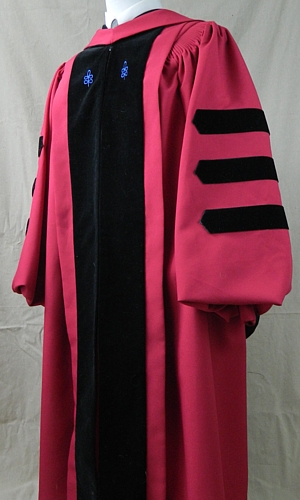Harvard University Divinity Program


Resources for the study of religion at Harvard are vast. We offer courses in the whole range of religious traditions from the ancient Zoroastrian tradition to modern Christian liberation movements, Islamic and Jewish philosophies, Buddhist social movements, and Hindu arts and culture. Some faculty work primarily as historians, others as scholars of texts, others as anthropologists, although the boundaries of these methodologies are never firm.
Some are adherents of a religious tradition; others are not at all religious. The study of religion is exciting and challenging precisely because of the conversations that take place across the complexities of disciplines, traditions, and intellectual commitments. The dates from 1934, when the Faculty of Arts and Sciences established a degree of PhD in the history and philosophy of religion. Its purpose, as stated by the faculty, was “to make possible a course of studies which shall enable the candidate both to lay a broad and sufficient foundation for teaching and study within the field of religion, and to do individual research at some point in that field.” In accordance with that expressed intention, the faculty voted in 1963 to name the program the Study of Religion. This program is jointly offered by the Graduate School of Arts and Sciences and the Harvard Divinity School and administered by the Committee on the Study of Religion.
Faculty from both schools advise PhD students and offer classes in the program. Students enroll in and receive their PhD from GSAS though they may study primarily with faculty from Harvard Divinity School. Admissions Requirements Admission to the PhD program in the Study of Religion at Harvard is very competitive: typically only 5 to 6 percent of all applicants are admitted. Basic requirements include a bachelor’s degree or its equivalent with an undergraduate record of outstanding quality—a previous master’s degree is not required, but it is the rare, exceptional student who is admitted without one. Similarly, while a previous major in the field of religion is not required, the applicant’s preparation in this and related subjects is a critical consideration. Applicants must submit current GRE scores and TOEFL scores if a non-native English speaker, unless the applicant holds a BA degree (or equivalent degree) from an English-speaking university. For the PhD in religion, the minimum iBT TOEFL score is 105.
Harvard Divinity School. The Religious Literacy Project is dedicated to enhancing and promoting the public understanding of religion. Find resources and information for Harvard students. Harvard University Menu About Harvard Harvard at a Glance; Harvard's. Operating System Pdf By Galvin 8th Edition. Harvard Divinity School. Main Website. Harvard University is a private. 1–4 When the Hollis Professor of Divinity David Tappan died in. Established in 1879 as sister school of Harvard.
In addition, applicants must submit an abstract of courses, three letters of recommendation, and a brief writing sample no more than 10 pages or 2,500 words. A statement of purpose outlining their proposed project is also required. When applying, prospective students should review the. The Committee on the Study of Religion admits students who have clearly defined intellectual interests evidenced in the statement of purpose and completed application.
Applicants may choose only one area of specialization from the list. In cases where a student’s interest span two fields, faculty related to both fields will review the application. Applicants must clearly explain their interdisciplinary interests in their statement of purpose and also state which field would be their primary home. If you find your particular field of interest is not noted, please contact us directly. Language Requirements All doctoral applicants are expected to have foundational language work needed for primary research (textual or ethnographic) in the area of specialization (Greek, Hebrew, Latin, Sanskrit, Arabic, Chinese, etc.) at the time of application.